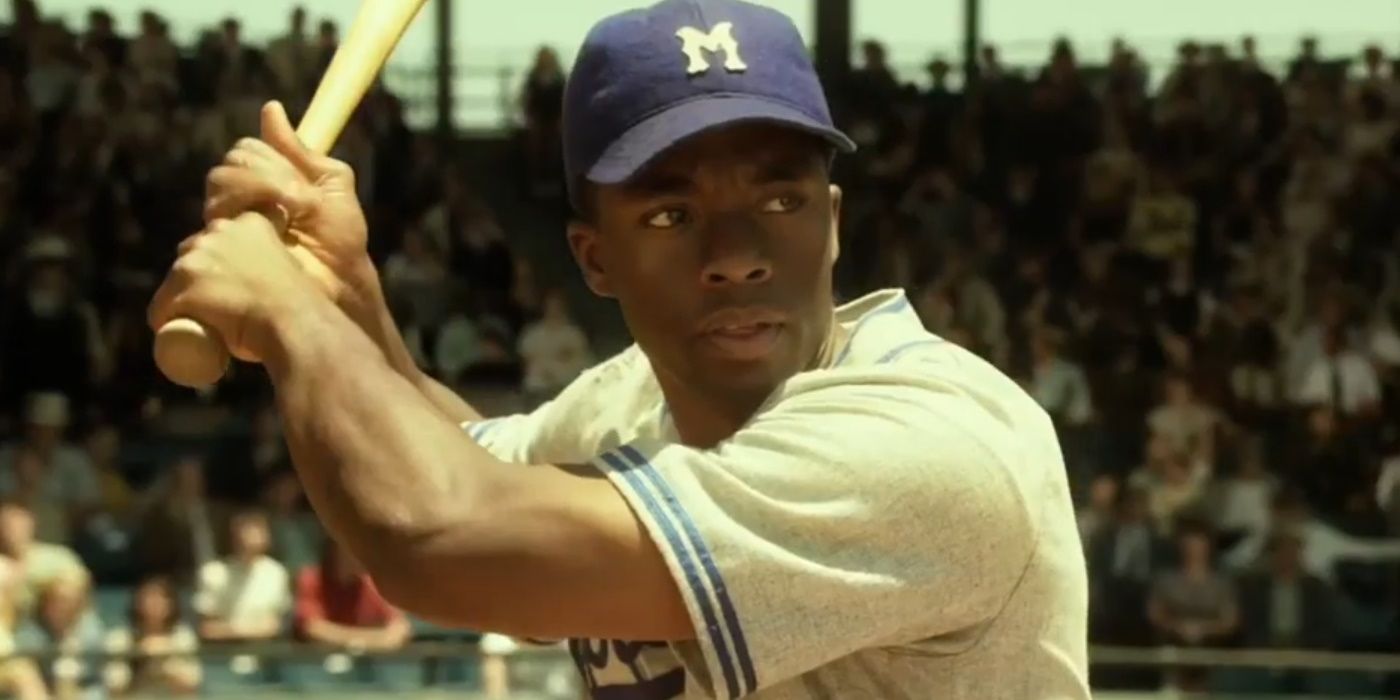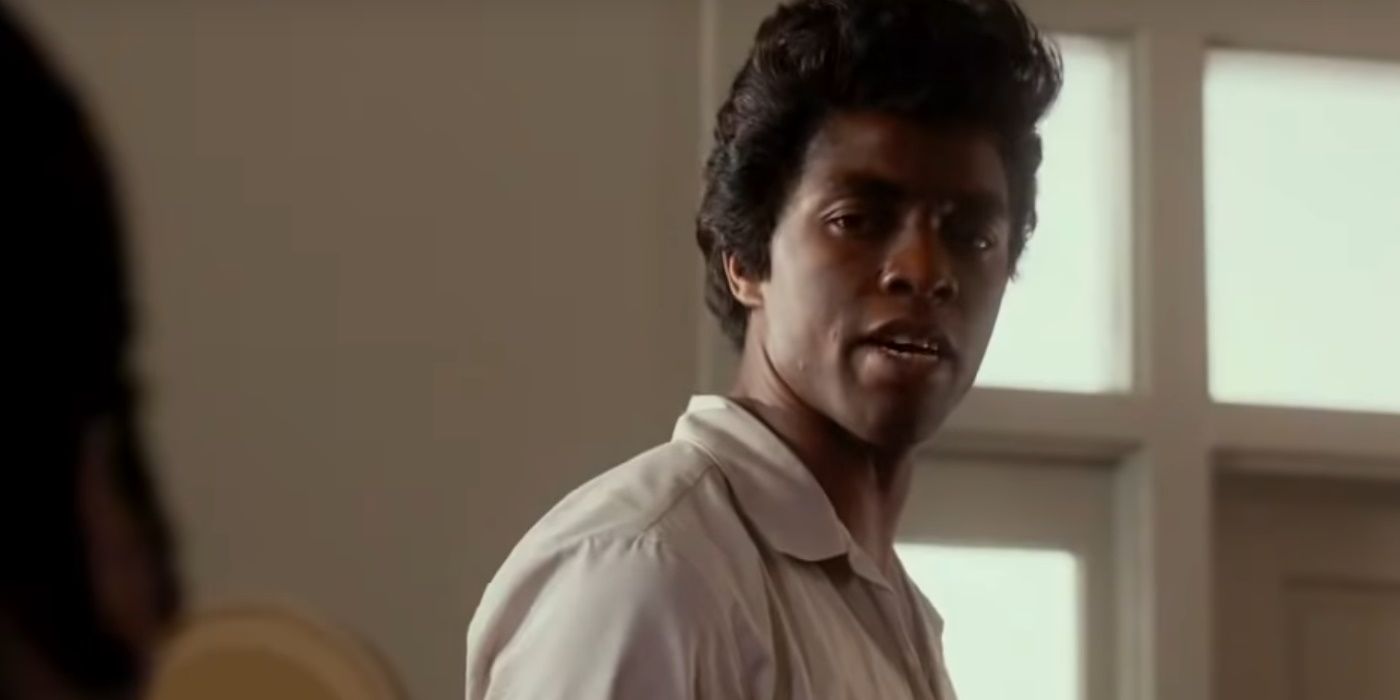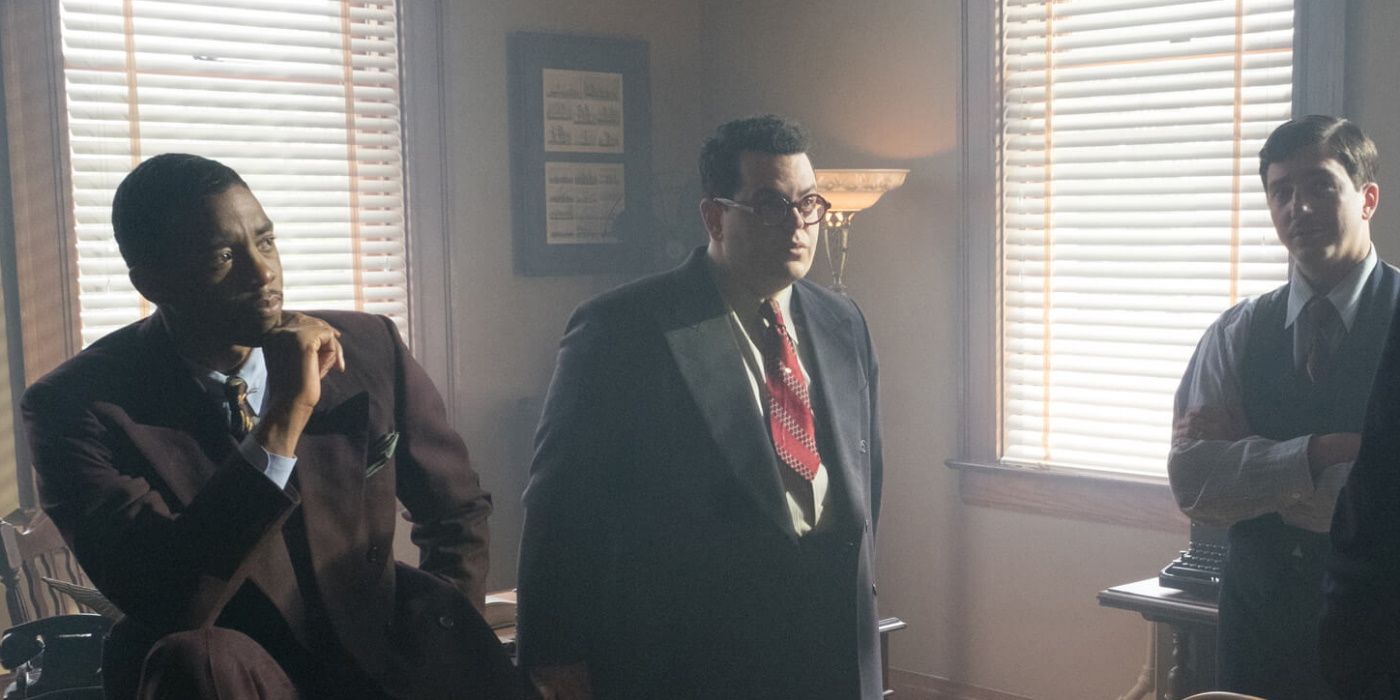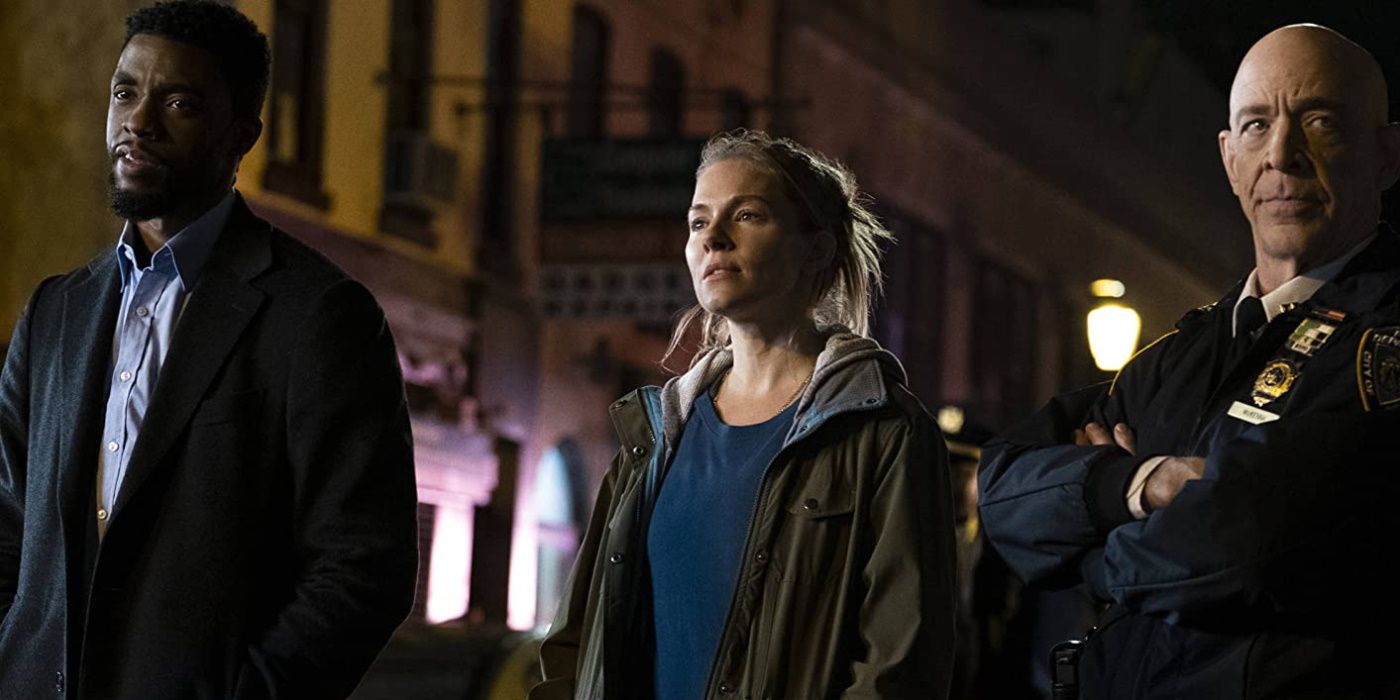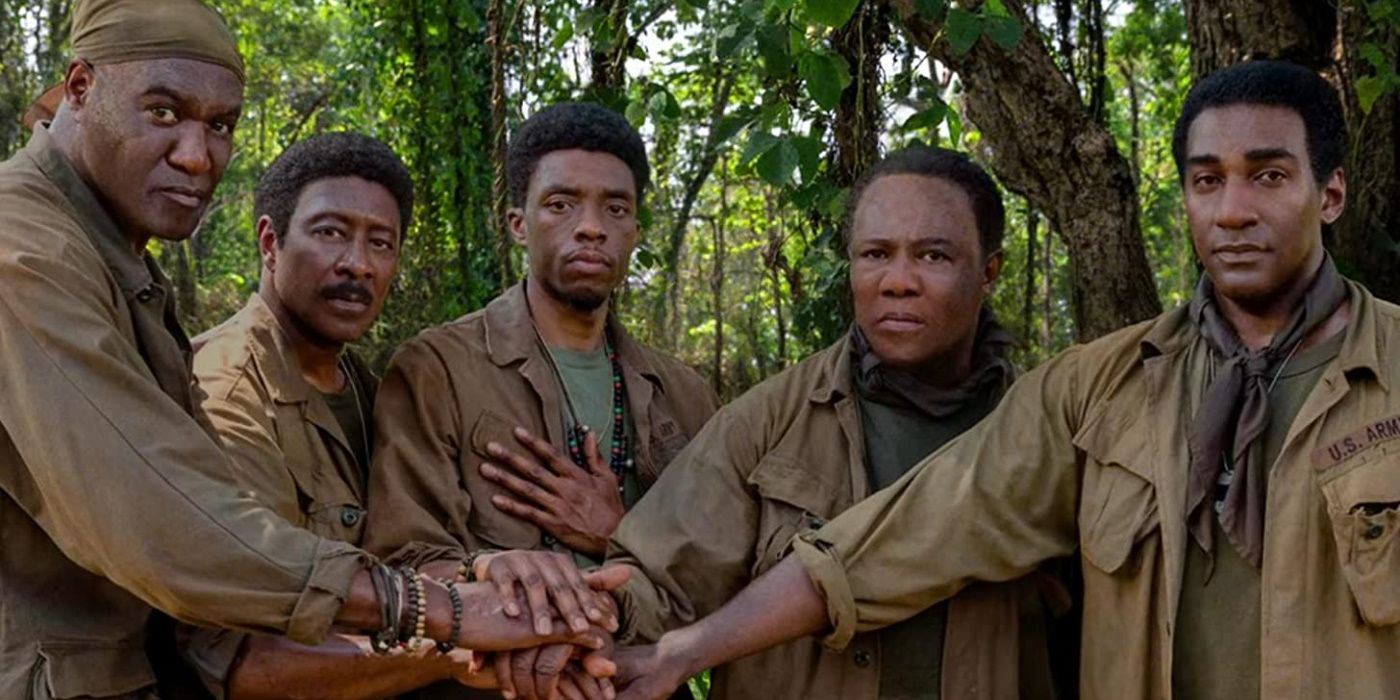Chadwick Boseman passed away on August 28th at the age of 43, following a private four-year battle with colon cancer. Best-known for playing T'Challa, the Black Panther, in the Marvel Cinematic Universe, Boseman had a long list of TV and film roles in the New York and Los Angeles production scenes dating back to 2003.
Born in Anderson, South Carolina in either 1976 or 1977 (sources vary), Boseman graduated from Howard University in 2000, where he was mentored by Phylicia Rashad (The Cosby Show). While at Howard, he attended the Oxford Mid-Summer Program at the British American Drama Academy in London, with money that Rashad helped to raise. Initially intending to become a director, and having already written a couple of plays, Boseman also attended New York's Digital Film Academy. He eventually opted to pursue acting full-time and moved to Los Angeles in 2008. He began the LA stage of his career with guest roles on TV shows such as ER, Lie to Me, Castle, Cold Case, and Justified; playing a recurring character on Lincoln Heights; and with of the lead roles in Christopher McQuarrie's 2010 NBC miniseries Persons Unknown.
Boseman's breakthrough performance came in 2013, when he got the lead role in Brian Helgeland's Jackie Robinson biopic 42. He quickly followed it up with 2014's Get on Up, playing James Brown in a film based on his rise to stardom, and the 2016 Netflix original revenge film Message from the King. While Boseman received accolades for his performances in 42 and Get on Up, it wasn't until he played Black Panther in 2016's Captain America: Civil War that he became a household name.
In the wake of his death, his family disclosed that 2016 was also the year that Boseman initially received his cancer diagnosis. While the details of his treatment aren't known to the public, the timing of his diagnosis has recast many of his subsequent roles and public appearances in a new light. There's a particular moment on the Black Panther press tour, when Boseman discussed meeting with two terminally ill fans of his and subsequently broke down crying, that has acquired a new significance now.
While Boseman spent much of his time after Civil War on the MCU, going on press tours, making public appearances, and playing T'Challa on a famous "Black Jeopardy" skit when he hosted Saturday Night Live, he was also capitalizing on that fame to take more leading roles. With an all-too-short history of strong dramatic performances in biographies, it's difficult not to see Boseman's death as the early end of a career as an increasingly respected character actor.
While Boseman's role as Black Panther is likely to be, and deserves to be, a big part of his overall legacy, here are six other films that are as important or moreso in his career. When putting together the programming list for a theoretical Chadwick Boseman film festival, don't leave these out.
42 (2013)
Co-starring Harrison Ford, Nicole Beharie, Christopher Meloni, André Holland, and Alan Tudyk, 42 follows the path that Jackie Robinson took from the Kansas City Monarchs to the Brooklyn Dodgers, starting in 1945. It's worth noting that 42 is a dramatization, not a reenactment, and baseball fans have criticized the film for its historical errors; for example, Robinson proposed to his eventual wife Rachel well before he began his baseball career, not afterwards as the film depicts.
The film, which grossed $97.5 million on a $40 million budget, was the first Jackie Robinson biopic to actually get released, after directors like Spike Lee and Robert Redford had been trying to get related projects off the ground since 1995. 42 eventually got made by writer/director Brian Helgeland (Mystic River, LA Confidential) and came out in April of 2013 to solid reviews. Boseman's performance drew particular praise, with Time magazine's Mary Pols saying "Boseman anchors the movie, and when he smiles, 42 gets even brighter."
Get on Up (2014)
From one extreme to the other: Boseman's performance at Jackie Robinson was markedly stoic, but in Get on Up, he was called to perform as the expressive, physically active James Brown, across the course of nearly 60 years of his career. It's hard to think of another two films like this, back to back, that more perfectly showcase an actor's range.
Directed by Tate Taylor (Ava, Ma, The Girl on the Train) from a script by Jez and John-Henry Butterworth (Edge of Tomorrow, Fair Game), Get on Up barely broke even at the box office in the summer of 2014. That doesn't sound great, but it was up against Guardians of the Galaxy, so it's more of an accomplishment than one might think. Once again, Boseman's performance was called upon to anchor the film, and he delivered what the New Yorker called a "startling and galvanic performance."
Marshall (2017)
Reginald Hudlin's historical drama is also a weird sort of predecessor to Black Panther. Hudlin wrote two volumes of the Black Panther comic from 2005 to 2009, which includes the introduction of T'Challa's little sister Shuri (initially a very different character than the gadgeteer she'd eventually become) and T'Challa's wedding to Storm. In addition to Boseman as Thurgood Marshall, the film also features Sterling K. Brown (N'Jobu in Black Panther) as Joseph Spell.
While Marshall is widely known as a biopic of Marshall, who would eventually become the first black Supreme Court Justice, the film focuses almost exclusively on a single hallmark case from early in Marshall's career. As a lawyer in the NAACP, Marshall was often sent across the country to defend people of color, and in 1940, that took him to Connecticut to defend Joseph Spell against rape charges by his white employer. It's based on a particularly dramatic story from real-world history, with a genuine twist, but it doesn't have the years-long scope or tight focus that a typical biopic usually brings to the table.
Marshall made its initial world premiere at Boseman's alma mater, Howard University, before going on to a limited theatrical release. It grossed $10 million against a $12 million budget, but drew strong overall reviews. Boseman's performance was again praised, with Entertainment Weekly saying that he imbued "the young Marshall with a quiet confidence and a dogged devotion to truth and justice."
21 Bridges (2019)
An unusual role for Boseman, 21 Bridges has him playing Andre Davis, an NYPD detective with a reputation as a killer of cop killers. Starring alongside Sienna Miller, J.K. Simmons, and Keith David, Boseman ends up as the anchor of an action/pursuit drama that would almost certainly have fallen apart without him or someone like him in the lead. (It's hard not to wonder if someone, if not Boseman himself, was thinking of Denzel Washington's role as a gleefully corrupt cop in 2001's Training Day while they made 21 Bridges.) Boseman's Davis is called upon to chase down two fugitives in New York City, which forces him to close down the city's titular bridges, while the story rapidly complicates itself around both Davis and his targets.
21 Bridges features Boseman exploring his new post-Black Panther status as a potential box-office draw, as an American action anti-hero in a fast-paced thriller. (It wouldn't make an awful follow-up with 2016's Message from the King on Netflix; sort of a "Chadwick Boseman Is The Only Reason to Watch This" double feature.) While it's got the most negative critical reception of anything in Boseman's post-Black Panther career, he's often credited as the best thing in it, turning a "big, blunt, battering ram of a movie" (the New York Times) into something watchable.
Da 5 Bloods (2020)
Spike Lee's Vietnam war drama for Netflix co-stars Delroy Lindo, Clarke Peters, Norm Lewis, and Isiah Whitlock Jr., as a group of Vietnam veterans who reunite in 2020 to claim a stash of gold bars they hid in the jungle during the war. Given the timing of the film, with Boseman riding high off of MCU hype, one would expect that he'd be a bigger part of Da 5 Bloods, maybe playing the central role of Lindo's character's son David. Instead, that part went to Jonathan Majors (The Last Black Man in San Francisco), while Boseman plays the smaller but pivotal role of the soldiers' squad leader Stormin' Norman.
According to Lee, being interviewed in the Atlantic alongside his writing partner Kevin Willmott, this was deliberate. "This character is heroic; he's a superhero," Lee said. "Who do we cast? We cast Jackie Robinson, James Brown, Thurgood Marshall, and... T'Challa! Chad is a superhero!" In Da 5 Bloods, when Boseman is on screen, he's deliberately shot with light coming gently down from above on him, to reflect the Christlike reverence that the other characters have for Norman. In a weird sort of way, then, while Boseman isn't as central to Da 5 Bloods as the five leads, the film does make a fitting coda for him, as it builds metatextually on his body of work up to that point.
Upcoming: Ma Rainey's Black Bottom (2020)
Chadwick Boseman's final completed film project is a drama directed by George C. Scott. Based on August Wilson's award-winning 1982 play, Ma Rainey co-stars Viola Davis in the title role, as a blues singer in 1927 Chicago, whose tense relationship with her band, her manager, and her producers all boils over at once during a single eventful recording session. The film, distributed by Netflix, was widely considered to be "Oscar bait" for Boseman, who plays Levee, an ambitious trumpeter in Rainey's backing band.
Netflix will distribute Ma Rainey's Black Bottom, but has yet to announce a release date, and has canceled a planned preview of the film in the wake of Boseman's death. Boseman's final performance as T'Challa may come in the Disney+ animated anthology MCU series What If...?, where he was slated to provide voice acting for its debut episode.


